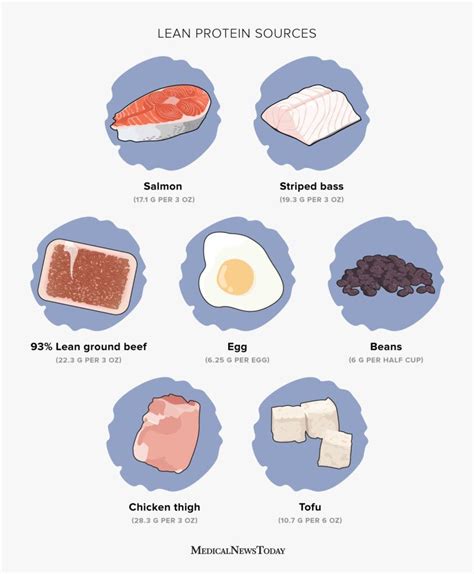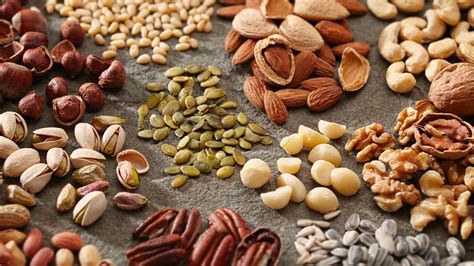Prevent men’s energy crashes: what foods stabilize blood sugar for peak focus?

The Link Between Blood Sugar and Men’s Energy
For many men, the mid-afternoon slump or unexpected energy crashes are a familiar and frustrating experience, often attributed to a lack of sleep or simply a busy schedule. However, a significant culprit behind these dips in vitality and focus is often fluctuating blood sugar levels. When blood sugar spikes rapidly after a meal and then crashes, it can leave you feeling drained, irritable, and unable to concentrate. Understanding how to stabilize your blood sugar through diet is key to unlocking consistent energy and maintaining peak mental performance.
Stable blood sugar ensures a steady supply of glucose to your brain and muscles, preventing the rollercoaster effect of highs and lows. This consistent fuel not only powers your physical activities but also supports cognitive functions, memory, and sustained attention. The good news is that achieving this stability doesn’t require drastic dietary overhauls, but rather intelligent food choices.

Complex Carbohydrates: Your Steady Energy Source
Forget the myth that all carbs are bad. Complex carbohydrates are your friends when it comes to blood sugar stabilization. Unlike simple sugars that cause rapid spikes, complex carbs are digested slowly, providing a gradual and sustained release of glucose into the bloodstream. This prevents the sharp peaks and subsequent crashes.
- Whole Grains: Oats, quinoa, brown rice, whole-wheat bread, and barley are packed with fiber, which slows down digestion.
- Legumes: Lentils, chickpeas, black beans, and kidney beans offer both complex carbs and protein, contributing to a feeling of fullness and steady energy.
- Starchy Vegetables: Sweet potatoes, corn, and peas provide nutrients along with their complex carbohydrate content.
Lean Proteins: Sustained Satiety and Blood Sugar Control
Protein plays a crucial role in moderating blood sugar responses. When consumed with carbohydrates, protein slows down the absorption of glucose, leading to a more gradual rise in blood sugar. It also promotes satiety, helping to prevent overeating and subsequent energy slumps.
- Poultry and Fish: Chicken breast, turkey, salmon, tuna, and cod are excellent sources of lean protein and essential nutrients like omega-3 fatty acids.
- Eggs: A versatile and complete protein source that can be incorporated into any meal.
- Plant-Based Proteins: Tofu, tempeh, edamame, and various nuts and seeds offer substantial protein without the saturated fats found in some animal products.

Healthy Fats: The Unsung Heroes of Energy Stability
While often feared, healthy fats are essential for overall health and play a key role in blood sugar management. Like protein, fats slow down digestion and nutrient absorption, contributing to sustained energy and satiety. They also help reduce the glycemic load of a meal.
- Avocados: Rich in monounsaturated fats and fiber.
- Nuts and Seeds: Almonds, walnuts, chia seeds, flax seeds, and pumpkin seeds provide healthy fats, fiber, and some protein.
- Olive Oil: A staple in Mediterranean diets, beneficial for heart health and blood sugar control.

Fiber-Rich Foods: The Digestive Regulator
Fiber is arguably one of the most important components for blood sugar stability. Soluble fiber, found in oats, beans, apples, and citrus fruits, forms a gel-like substance in the gut, slowing down glucose absorption. Insoluble fiber, found in whole grains and many vegetables, adds bulk and aids digestion. Both types are vital.
- Fruits: Berries, apples, pears, and oranges (eat the whole fruit, not just juice) are good sources.
- Vegetables: Leafy greens, broccoli, carrots, and bell peppers are low in calories and high in fiber and nutrients.

Practical Strategies for Peak Focus
Incorporating these foods into your daily routine is simpler than you might think. Focus on balanced meals that combine complex carbohydrates, lean protein, healthy fats, and plenty of fiber. For example:
- Breakfast: Oatmeal with berries, nuts, and a scoop of protein powder; or scrambled eggs with whole-wheat toast and avocado.
- Lunch: A large salad with grilled chicken or chickpeas, quinoa, and olive oil dressing; or a lentil soup with whole-grain bread.
- Dinner: Baked salmon with brown rice and steamed broccoli; or a bean burrito in a whole-wheat tortilla with plenty of vegetables.
- Snacks: A handful of almonds, an apple with peanut butter, or Greek yogurt with chia seeds.
Remember to stay hydrated throughout the day, as dehydration can also impact energy levels and focus. Aim for consistency in meal timing to help regulate your body’s natural rhythms and prevent extreme hunger that can lead to poor food choices.

Conclusion: Fueling Your Focus and Energy
Preventing energy crashes and maintaining peak focus isn’t just about willpower; it’s about smart nutrition. By prioritizing foods that stabilize blood sugar – complex carbohydrates, lean proteins, healthy fats, and fiber-rich fruits and vegetables – men can cultivate a consistent energy supply that supports both physical stamina and mental acuity. Making these dietary shifts will not only eliminate the dreaded energy slump but empower you to tackle your day with sustained vitality and sharp focus.








